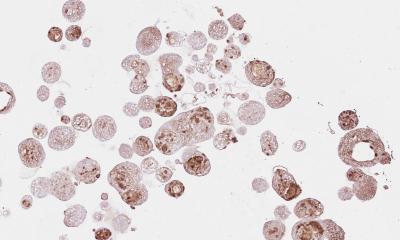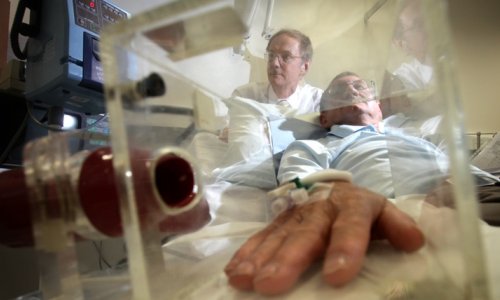News • Tailor-made therapies
Diabetes care enters precision medicine
A new joint report from the American Diabetes Association (ADA) and the European Association for the Study of Diabetes (EASD) presents the largest venture ever on precision medicine in diabetes. The report includes a detailed overview and roadmap for how this new approach to diabetes medicine can be evaluated and implemented into clinical practice.

Image source: Lund University/ Photo: Kennet Ruona
The report was jointly published in the scientific journals Diabetes Care and Diabetologia.
The role of precision diabetes medicine will be to help ensure diabetes medicine is tailored to the individual patient by integrating all credible evidence available for a given patient. “The intention is not to develop diabetes medicines that are unique for each individual, but rather to ensure that subgroups of the population are treated optimally, thereby maximizing the probability of positive health outcomes and minimizing unnecessary side-effects and costs”, says Paul Franks, professor of genetic epidemiology at Lund University and co-chair of the ADA Precision Medicine in Diabetes Initiative.
The concept with precision medicine is not novel, what has changed radically during the last decade is our ability to characterize and understand human biological and genetic variation, leveraging data to inform disease categories, and science-guided preventive and treatment decisions tailored to specific pathological conditions.
Recommended article

Article • Healthcare 2.0 by NVIDIA
Deploying AI in healthcare
With the right tools, physicians could transform the lives of patients and scientists. For Kimberly Powell, Vice President of Healthcare at NVIDIA, artificial intelligence is such a tool, and could meet the increasing demand for personalised medicine and next-generation clinics. ‘AI is the biggest technological breakthrough of our lifetime.’
What we learn will eventually inform standards of care and thus influence the manner in which diabetes medicine is practiced on a global scale
Paul Franks
The American Diabetes Association Standards of Medical Care in Diabetes from 2020 highlights that “clinicians care for patients and not populations”. This reflects the appreciation of individual differences with respect to social circumstances, response to treatment and comorbidities. For precision diabetes medicine to be effective, it must be tailored to the individual. “We’re working on a long-term vision for precision diabetes medicine, starting by evaluating the very basis of the concept and using this to map a path from discovery to clinical implementation. What we learn will eventually inform standards of care and thus influence the manner in which diabetes medicine is practiced on a global scale”, says Franks.
The report presents the aim and mission of the ADA Precision Medicine in Diabetes Initiative. The report provides working definitions of all key elements of precision diabetes medicine: precision diagnosis, prevention, treatment, monitoring and prognosis. It also highlights areas in need of more research and evaluation that are essential to delivering precision diabetes medicine to the majority of those in need. “The Precision Medicine in Diabetes Initiative was launched in 2018 by the ADA, in partnership with the EASD with the goal to establish consensus on the viability and potential implementation of precision medicine in order to realize a future of longer, healthier lives for people with diabetes”, says Franks.
This is the first consensus report on precision medicine in diabetes. It does not seek to address the role of precision medicine in the complications of diabetes, which is a topic for future evaluation. In addition, it does not discuss diabetes digital device technology, as this is addressed in another joint ADA/EASD Consensus Report. A second PMDI Consensus Report is planned for 2022 and will document the findings of a systematic evidence review, focusing on precision diagnostics and precision therapeutics.
Source: Lund University
23.06.2020





